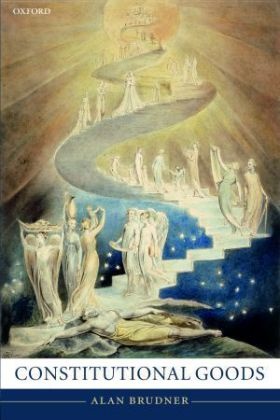Read more
Zusatztext There can be no doubting the fact that this is a major contribution to constitutional scholarship, one that bears comparison with any work of constitutional scholarship to have been published in recent times. Informationen zum Autor Alan Brudner is Albert Abel Professor of Law at the University of Toronto. Klappentext This book aims to distil the essentials of liberal constitutionalism from the jurisprudence and practice of contemporary liberal-democratic states. It argues that the model liberal-democratic constitution is best understood as a unity of three constitutional frameworks: libertarian, egalitarian, and communitarian. When viewed in this light, the liberal constitution embodies a surprising synthesis. It reconciles a commitment to individual liberty and freedom of conscience with the perfectionist idea that the state ought to cultivate a type of personality whose fundamental ends are the goods essential to dignity. Zusammenfassung This book aims to distil the essentials of liberal constitutionalism from the jurisprudence and practice of contemporary liberal-democratic states. Most constitutional theorists have despaired of a liberal consensus on the fundamental goals of constitutional order. Instead they have contented themselves either with agreement on lower-level principles on which those who disagree on fundamentals may coincidentally converge, or, alternatively with a process for translating fundamental disgreement into acceptable laws. Alan Brudner suggests a conception of fundamental justice that liberals of competing philosophic schools may accept as fulfilling their own basic commitments. He argues that the model liberal-democratic constitution is best understood as a unity of three constitutional frameworks: libertarian, egalitarian, and communitarian. Each of these has a particular conception of public reason. Brudner criticizes each of these frameworks insofar as its organizing conception claims to be fundamental, and moves forward to suggest an Hegelian conception of public reason within which each framework is contained as a constituent element of a whole. When viewed in this light, the liberal constitution embodies a surprising synthesis. It reconciles a commitment to individual liberty and freedom of conscience with the perfectionist idea that the state ought to cultivate a type of personality whose fundamental ends are the goods essential to dignity. Such a reconciliation, the author suggests, may attract competing liberalisms to a consensus on an inclusive conception of public reason under which political authority is validated for those who share a confidence in the individual's inviolable worth. Inhaltsverzeichnis Preface Introduction: The Aim of Constitutional Theory Part One: Liberty 1: The Libertarian Conception of the Public 2: Constitutional Principles: Civil Rights 3: Constitutional Principles: Political Rights Part Two: Equality 4: The Egalitarian Principle of Fundamental Justice 5: Self-Authorship and Substantive Justice 6: Self-Rule and Procedural Justice 7: Social and Economic Rights Part Three: Community 8: Hegel's Idea of Sittlichkeit 9: Sex, Family, and Self-Authorship 10: The Liberal Duty to Recognize Cultures 11: Consociationalism Conclusion ...

